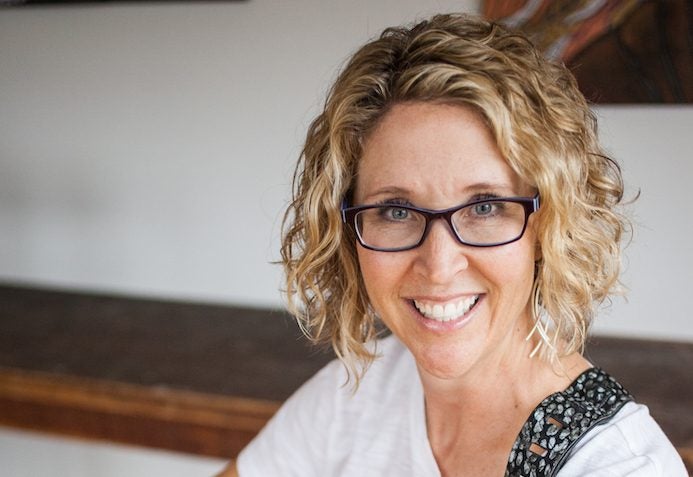SMITH: Why we need morning routines
Published 12:55 pm Thursday, September 17, 2020

- Erin Smith is the owner of the OM place in Winchester, the author of “Sensible Wellness” and the online host of the OM channel. Follow her on Twitter @erinsmithauthor.
|
Getting your Trinity Audio player ready...
|
When I awaken each day, I ask myself three questions before I get out of bed:
— How can I give?
— How can I grow?
— How am I grateful?
Then I brew the coffee, drink a glass of water, let Cat Stevens in, then snuggle on the couch with Cat and coffee to meditate.
Maintaining this routine through quarantine has kept me sane. It’s the only part of my day that is exactly the same in the after as it was in the before.
The human brain is basically a prediction organ that avoids uncertainty at all costs. Uncertainty engages the fight, flight or freeze part of our brains, which creates anxiety and stifles clear thinking.
Routines help our brains understand what is coming next. They stimulate the ventral tegmental, a part of the brain associated with reinforcing behaviors.
Basically, our brain rewards us when we complete a predictable routine. We get up, brush our teeth, take a shower, drop the kids at school, stop at our local coffee shop to grab some joe and say “Hi!” to our favorite barista, go to work and perform our work tasks.
This gets us a little shot of dopamine each time we complete a task in the routine cycle. This feel-good hormone reinforces the habits that make the brain feel comforted and safe. We’re happy because we know what’s coming next.
So what happens when you’re on lockdown and your routine is obliterated? What happens to us when we are forced to work and school from home?
Now that our routines are disrupted, our brains are no longer giving us that dopamine hit. This leads to us seeking unhealthy ways to mitigate our falling dopamine levels. We chase the dopamine dragon with carbohydrates, drinking, drugging, online shopping, porn, incessant Netflix binging or mindless scrolling.
While we might like the quick hit of the feel-good juice, it wreaks havoc on our routines and leaves us more stressed than before.
While many of us have adopted new habits this year — we wash our hands more often and we always carry a mask with us — most of us are still struggling to create a daily routine.
A routine is a series of habits – two or more – that help give shape to our days. A routine is stronger than a habit.
How many times have you walked into Kroger, then remembered that your mask was in the car? I suspect this happens because we haven’t stacked the habit of mask-wearing with another habit that would make it a routine and cement it in our brain.
Our current routines are a mess.
We skip the shower because it’s just another Zoom call and no one can smell our unwashed hair.
We don’t have a scheduled lunch break, so we eat every time we happen to pass through the kitchen.
Our group fitness class is online, so we skip the live feed, promising ourselves we will do it later, knowing in our hearts that later means never.
We confuse our brains by attempting to work in a place where we are supposed to eat, relax and sleep.
Our day’s a constant screen parade of, “OK. I”m back,” followed by another mute button as we deal with the barking dog, the mail delivery, the kid screaming that she can’t get on the WiFi again.
How do we find more shape in our days? We can stimulate those dopamine-based rewards by sticking to routine, no matter how simple. And we stick to it, long term, by adopting not just a routine but a ritual.
A ritual elevates a routine to a spiritual practice. A routine is simply a series of habits done in repetition. A ritual adds intention and attention to bring meaning and joy to the routine.
If routines are a series of mundane habits, then rituals are routines with deeper meaning or emotion attached to them.
It reminds us why we want to adopt a ritual, and that understanding helps us stick to it long term.
I believe the strongest rituals are ones that set the tone for your day.
Ben Franklin woke up at 5 a.m. each morning and asked himself, “What good shall I do today?”
To prepare himself to compose music, Ludwig van Beethoven would count out exactly 60 coffee beans to make one perfect cup of morning coffee. As he drank that perfect cup, he would start to hear compositions in his mind.
Author Stephen King writes 2,000 words right after breakfast, freeing up the rest of his day to nap, read and watch the Red Sox.
My morning ritual is not just a series of tasks (questions, coffee, water, cat, couch), but an opportunity to start the day on my terms. It grounds me and reminds me that, while I can rarely control the circumstances of the coming day, I can always control my attitude.
We will always have a long to-do list of stuff that just needs to get done. But we can bring more purpose to our days by doing so with intention and attention.
This cultivates structure and gives us the dopamine hit we so desperately want.
When things get tough (hello, global pandemic), a ritual turns down the brain’s anxiety dial and helps us become more resilient and hopeful.
Erin Smith is the owner of the OM place in Winchester, the author of “Sensible Wellness” and the online host of the OM channel.





